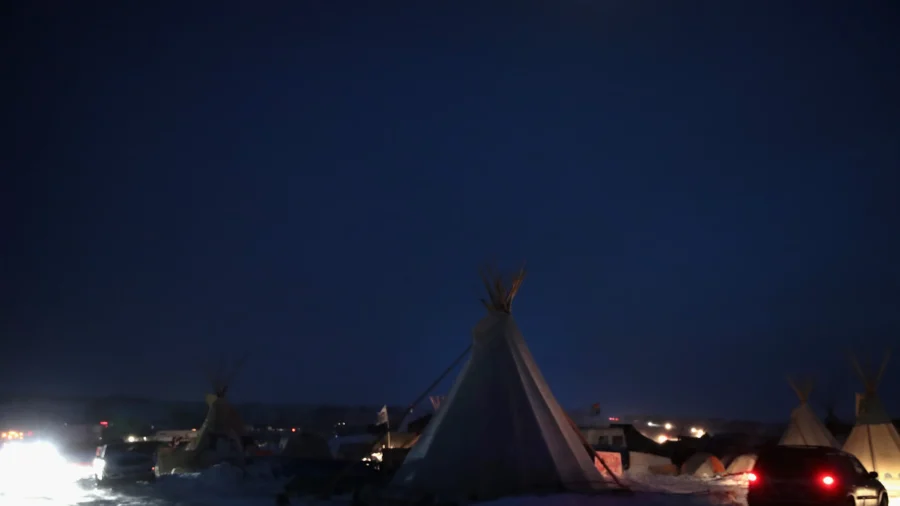BISMARCK, N.D.—Bitter cold weather is causing a rash of spills in the oil fields of North Dakota as well as a slowdown in production, regulators say.
North Dakota has seen multiple days of frigid weather with windchills at times reaching as low as minus 70 degrees (minus 57 Celsius) in its Bakken oil fields. Regulators say that strains workers and equipment, which can result in mishaps that lead to spills.
More than 60 spills and other gas or oil environmental problems have been reported in the last week, according to the state’s spill dashboard.
“This is probably the worst little stretch that I’ve seen since I took over the spill program” a decade ago, North Dakota Department of Environmental Quality Spill Investigation Program Manager Bill Suess told the Bismarck Tribune.
Public health is not at risk due to the remoteness of the spills, Suess said. The spills most commonly have involved crude oil and produced water—wastewater that is a byproduct of oil and gas production, containing oil, drilling chemicals and salts. Produced water spills can cause long-term damage to impacted land.
Some companies are already engaged in cleanup despite the extreme cold, while others wait for the weather to warm. Suess said that given the extreme circumstances, the agency is giving companies some breathing room, but still expects the work to begin soon.
“They can’t wait until spring thaw,” Suess said. “They’re going to have to get out there working on these in the next say week or so.”
Production has declined during the cold spell, in part because companies are trying to prevent spills, said North Dakota Petroleum Council President Ron Ness. North Dakota producers are used to the cold, but “20 below is a different level,” Ness said.
As of Wednesday morning, the state’s output was estimated to be down 650,000 to 700,000 barrels of oil a day, and 1.7 to 1.9 billion cubic feet of gas per day, said North Dakota Pipeline Authority Executive Director Justin Kringstad. By comparison, the state produced an average of 1.24 million barrels of oil per day and 3.4 billion cubic feet of gas per day in October.
Kent Kirkhammer, CEO of Minot-based NewKota Services and Rentals, said only so much can get accomplished in harsh conditions when equipment freezes. He said the company is focused on ensuring that employees avoid being outside for too long.
“When it gets that cold, safety is first, but (we’re) just trying to keep things going,” he said.

